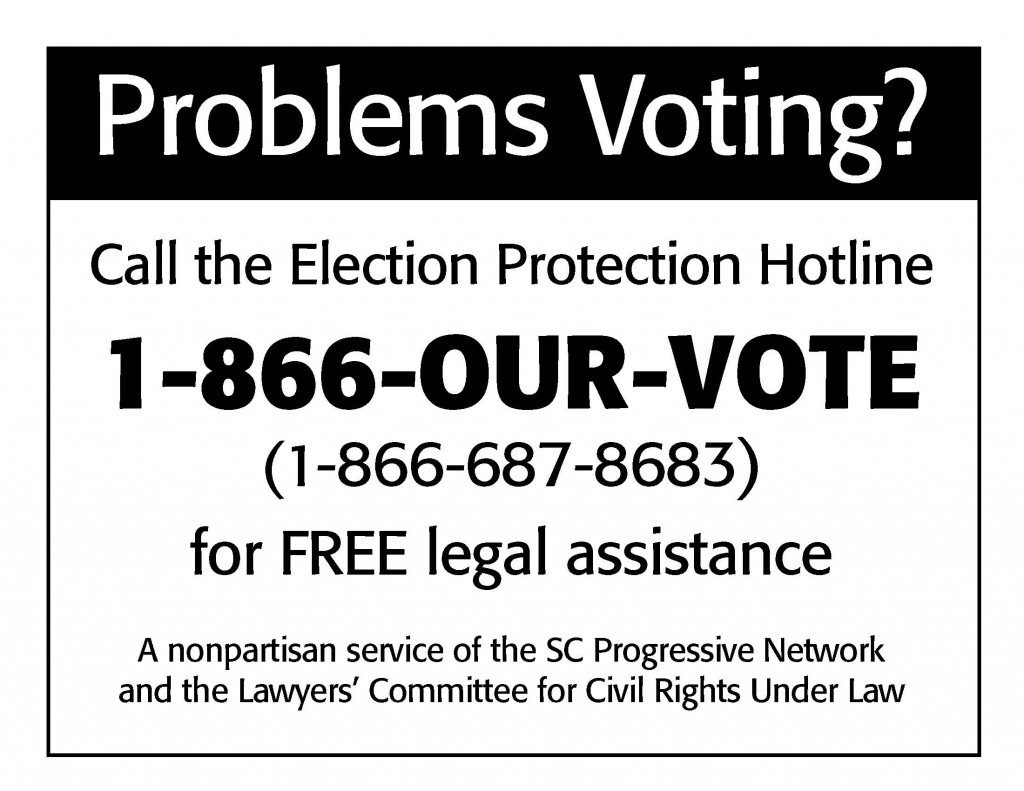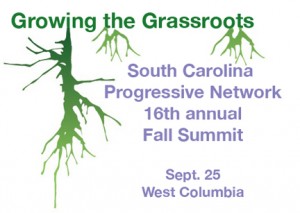By Tom Turnipseed
Columbia, SC
Tea Party oriented Republicans who will control the US House of Representatives want to repeal “Obama Care”. Southern Republicans like Gov. Rick Perry of Texas and US Rep. Zack Wamp of Tennessee have threatened Secession from the Union because of federal mandates in “Obama Care”.
In South Carolina, Republican Sen. Glenn McConnell is President Pro-Tem of the South Carolina Senate and one of our most powerful politicians. He also opposes Medicaid mandates. Recently, officials of South Carolina Health and Human Services asked McConnell to help continue funding health care for poor people. He replied, “ When the money provided by the state for Medicaid is gone, the insurance program for the poor must simply stop providing services.” “Your obligation under the constitution … is to the taxpayer of this state and not to bureaucrats in Washington, D.C.” South Carolinians pay both state and federal taxes that fund Medicaid, but by refusing to allocate $1 billion of our state tax revenue for this program over the next decade, South Carolina will lose $ 4 billion from the federal government for health care for 656,000 poor people, who are disproportionately black and children.
Tea Party states’ rights activists say their struggle against health care continues the struggle of Jefferson Davis and the secessionists in 1860. Rev. Cecil Fayard, chaplain in chief for the national Sons of Confederate Veterans, said “The War Between the States was fought for the same reasons that the tea party movement today is voicing their opinion.”
Sen. McConnell opposed removing the Confederate flag from atop the South Carolina State House in 2000 and finally brokered a compromise that placed the rebel flag in front of the state capitol at the Confederate soldier’s memorial monument. McConnell is a member of the Sons of Confederate Veterans, Secession Camp #4, and a Civil War re-enactor who owned a Confederate memorabilia store in Charleston. He founded and Chairs the Hunley Commission that raised a Confederate submarine from Charleston harbor. The Commission is restoring the sub for the Hunley Museum in Charleston with $22 million that is coming from state and federal funds according to their fund-raising organization. McConnell was recently photographed in Civil War military regalia with two African- Americans dressed as slaves at a meeting of the National Federation of Republican Women in Charleston. The Sons of Confederate Veterans work closely with the Confederate Heritage Trust.
The Confederate Heritage Trust is putting on a play and grand ball in Charleston on December 20th, celebrating the Secession of South Carolina from the United States in 1860. Neo-Confederates claim that secession was an issue of states’ rights rather than slavery but William Preston, a secessionist leader in South Carolina, said, “Slavery is our King; slavery is our Truth; slavery is our Divine Right.” South Carolina’s Declaration of Secession refers to Northern States; “Those States…have denounced as sinful the institution of slavery…They have encouraged and assisted thousands of our slaves to leave their homes.” Several thousands of those slaves from South Carolina served in the Union army in the Civil War that was started in Charleston by South Carolinians when they bombarded Fort Sumter in April, 1861. At least 618,000 Americans died in the Civil War.
I was also a champion of the lost cause of Dixie. In 1964-65, I became the first Executive Director of the South Carolina Independent Schools Association. Now emphasizing academic and athletic excellence, originally the private schools were created to allow white children to avoid racial desegregation in public schools in counties with large populations of blacks. Several were named for Confederate figures like Stonewall Jackson, Robert E. Lee, Jefferson Davis, and Wade Hampton.
I was an aide to George Wallace and then his National Campaign Director (1967-1971). Confederate flags were waved and racial slurs shouted at Wallace rallies throughout the country. My great-grandfather was a Confederate soldier and my grandfather was a Klan member. I named my only son Jefferson Davis Turnipseed. I was a racist who used my Confederate heritage to deny my racism.
I returned to South Carolina in 1972 and helped organize a coalition to reform electrical utility regulation that included African Americans. Electric rates for low volume residential users were 5 ½ times higher than for industrial users and a disproportionate number of the mostly poor low volume users were black. The rate hike hearings offered an opportunity to bridge the divide between poor blacks and whites. Our successful coalition helped me realize how prejudiced I had been against black people. I became an anti-racist activist and was elected to the SC Senate by an interracial coalition of everyday people. I am a life member of the NAACP, and was a leader in the effort to remove the rebel flag from our State House. Our law firm was co-counsel in a successful suit against the Klan for burning a black Baptist Church in South Carolina in 1998. These terrorist Klansmen waved the Confederate flag as they destroyed the church.
If a prejudiced devotee of Dixie like me could change, maybe there is hope for Secessionist Tea Partiers to change and allow poor black and white folks to have adequate health care.
Tom Turnipseed is an attorney, writer and peace activist in Columbia, SC. Read his blog here.



